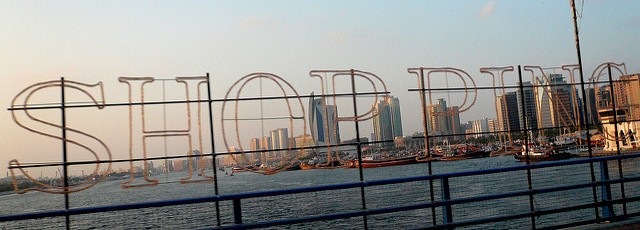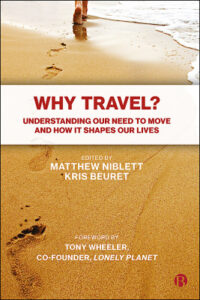Travelling to shop: the rise of shopping as a major motivation for international travel
March 2017
In January this year around 3 million people flocked to Dubai for its 2017 Shopping Festival. This month-long annual event offers discounts on a wide variety of consumer goods, particularly fashion, jewellery and electronic goods, alongside activities and daily prize draws. The festival was first set up over 20 years ago with the aim of building up Dubai’s retail and tourism sectors, and it continues to grow each year attracting residents and visitors from around the world, especially other Gulf States and India.[1]
The popularity of the Dubai Shopping Festival amongst international visitors is one example of the strong link between shopping and tourist travel. According to the UN World Tourism Organization (UNWTO) shopping has now become “a main motivation for travel” with shopping “transitioning from being a complementary factor to establishing itself as a major determinant in the tourists’ decisions about their preferred destinations.”[2] Many destinations now cater specifically for foreign tourists’ shopping desires through duty-free shops, special deals and dedicated shopping villages such as Bicester Village in the UK .
Shopping is a particularly popular motivation for travellers from Asia; as we explored in a blogpost last year, a Mastercard report found that European travellers tend to spend more on dining than shopping and for Asian tourists the opposite is true.[3] This is especially the case for Chinese tourists, who have in recent years overtaken Americans as the world’s largest spenders on international travel. According to the UNWTO, for Chinese travellers shopping is the “area of paramount expenditure, with approximately 30% of the total trip expenditure devoted to shopping.”[4] One example of this is in Korea, where a recent report by the Seoul city government found that of all foreign tourists to the city, the Chinese “ranked highest in terms of spending, at 2.13 million won (£1,500) per person,” which was over three times the average expenditure of Europeans and Americans and six times that of Japanese travellers.[5]
In addition to tourist travel motivated mainly or partly by shopping, so called ‘cross-border consumption’ is also on the rise as people make short trips across borders near their home to take advantage of different prices and exchange rates. Whilst these trips wouldn’t be classed as tourism by the UNWTO (which defines tourism to involve an overnight stay), they do illustrate the strong link between shopping and cross-border travel, and the huge economic impact that such travel can have. This is a familiar concept to the many Brits who travel to Calais for alcohol and cigarette purchases, and is a phenomenon found globally: shoppers cross between Finland and Russia looking for cheaper petrol or goods banned in Russia due to sanctions; and many mainland Chinese pop to Hong Kong for baby milk formula.[6]
In the past, analyses of tourist travel motivations focused on such concepts as ‘seeing the sights’, rest and relaxation, adventure and cultural experience. Popular travel writers and bloggers, and philosophers down the ages, have emphasized the motivations of personal development, self discovery and a search for authenticity; and sociologists have looked at social status as a major aspect of travel behaviour. At first glance, the rise of shopping as a main motivator for travel may seem to sit rather incongruously with these other activities. But perhaps for some forms of shopping tourism the desire to purchase and consume is itself linked to these other motivations: consumption is often used as a way of asserting social status and building a sense of identity, and the popularity of luxury goods from the destination country may play in to a desire to possess the ‘authentic ’.
The Dubai Shopping Festival is just one manifestation of the increasing importance of shopping as a travel motivator. The Independent Transport Commission believes that, as international tourism continues to grow, a thorough and nuanced understanding of traveller motivations, and the cultural and psychological drivers underpinning them, becomes ever more important. To this end, the ITC’s Why Travel? project explores the fundamental motivations for travel from a wide range of perspectives, and encompassing human travel in all its varied forms from shopping tourism to space exploration to the daily commute to work. For more information on the project, including expert views from across the arts, sciences and humanities, see www.whytravel.org
SEE ALSO
Chinese tourists in Kidlington – travel and the search for authenticity blogpost
Bangkok overtakes London blogpost
China becomes top spender blogpost
Economics topic page
Tourism topic page
Tourism chapter by Hazel Andrews in forthcoming Why Travel book
NOTES
[1] http://www.emirates247.com/business/dubai-shopping-festival-32-day-boost-for-economy-and-tourism-2016-01-23-1.618353 and www.visitdubai.com/en/dsf
[2] UNWTO Global Report on Shopping Tourism (2014) http://cf.cdn.unwto.org/sites/all/files/pdf/am9-shopping-report_v2.pdf
[3] http://newsroom.mastercard.com/asia-pacific/press-releases/bangkok-claims-title-as-worlds-most-visited-city-2016-mastercard-global-destination-cities-index/
[4] ETC & UNWTO Study ‘The Chinese Outbound Travel Market’ cited in http://cf.cdn.unwto.org/sites/all/files/pdf/am9-shopping-report_v2.pdf
[5] http://www.koreatimes.co.kr/www/news/nation/2016/07/116_208846.html
[6] For more on cross-border consumers see https://www.theguardian.com/money/2015/jul/02/cross-border-buying-shopping-bargains-globalisation



